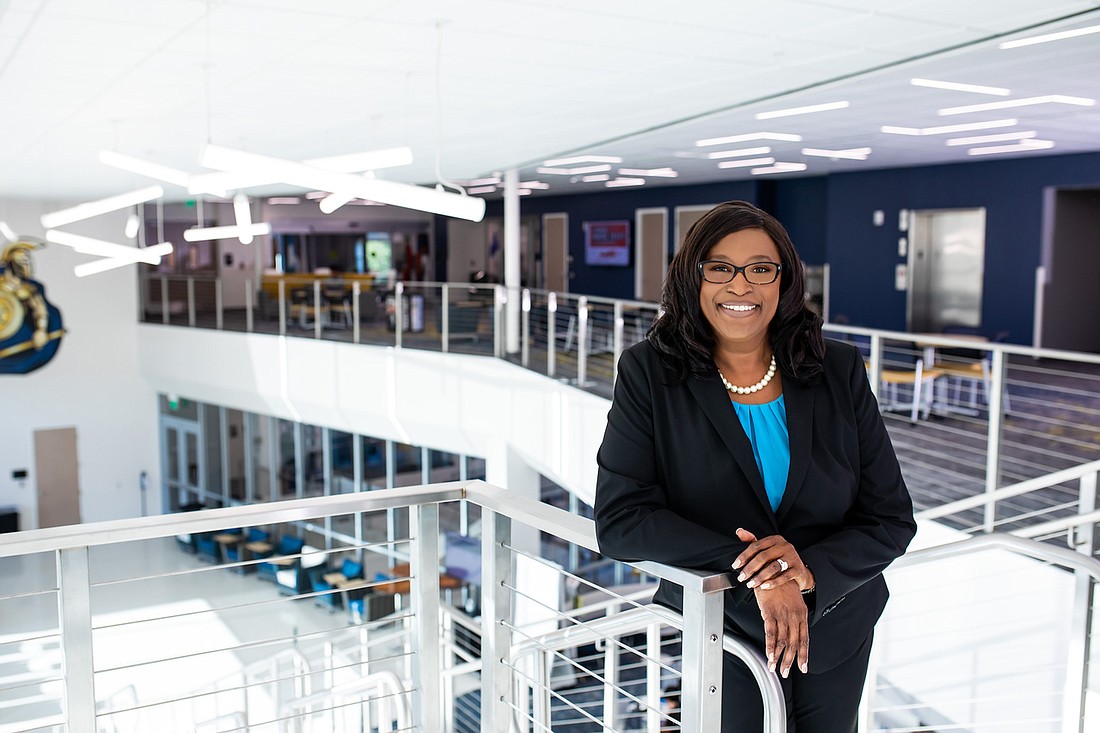- July 26, 2024
-
-
Loading

Loading

No one may be more surprised to learn that Tonjua Williams is the president of St. Petersburg College than her former high school teachers.
That may sound disparaging. But it’s not. In fact, it’s something Williams openly embraces, something that, in a way, she wears as a badge of honor.
The reason for this is that Williams’ poor academic record turned out to be a stepping stone that put her on a path to leading St. Petersburg College.
The college, which offers classes at 12 campuses and centers, has a total enrollment of 39,540 students, according to its 2020/2021 factbook. Of those, some 15,000 were full-time equivalent students, data from the 2023 Florida College System Enrollment Estimating Conference shows. A four-year institution, it's the sixth-largest community college in Florida and has 2,393 employees.
“My high school GPA was, I think, 2.0. It might have been less than that,” Williams says. “I was not a good high school student. Part of it was helping my mom, a single mom, so I had opportunities to work at an early age and school wasn't really my priority.”
Williams, 59, was raised in south St. Petersburg, one of three children to a single mother.
When she graduated high school in the early 1980s, she had no plans for college.
But her mother was in church one day when someone asked if there was anybody who had a student who could go to Clearwater Christian College.
The school, which closed in 2015, was then a small nondenominational college right off the Courtney Campbell Causeway as you entered the city from Tampa.
When the opportunity, which included a partial scholarship, presented itself, Williams’ mother, Willie Harris, jumped at the chance. Education was important to Willie, whose impressive parental track record includes a son, Arvys Harris, who works in the intelligence industry and a daughter, Lyn Harris, who is an attorney, along with Williams, the college president.
Even though she wasn’t prepared, her daughter needed to go to college.
At the time, Williams recalls, Clearwater Christian may have had as many as 200 students and she was the first Black one. It was strict, too. Women had to wear skirts and there were white glove inspections. This was a different world from the one she’d grown up in in her south St. Pete neighborhood, but it was what she needed right then.
Williams wound up taking 21 hours per semester to avoid having to take summer classes. She worked to help pay for school.
The experience turned out to be transformational.
She was elected Clearwater Christian’s equivalent of homecoming queen and became a dorm monitor. And, most importantly, she became a student.
Williams graduated from Clearwater Christian in 1985 with a bachelor's degree in humanities. Two years later, she earned her second bachelor's from the college, this time in business administration. She would wind up getting a master’s degree in education from the USF in 1996 and a doctorate in higher education administration from Barry University in 2007.
“I just really learned a lot about me during that time. I don't think I would have made it anywhere else because I had so much to learn about higher education study habits,” Williams says. “And there were no big parties or anything. We were constantly learning there. It was good for me. It was really good for me.”
Williams has brought the lessons to her work and for 37 years — starting as a senior accounting clerk and then moving into recruiting, administration, the classroom and the provost's office — she has been working to help make St. Petersburg College the kind of place Clearwater Christian was for her.
“At St. Petersburg College, we were born and developed to help people change their lives,” she says.
The college, which until 2001 was St. Petersburg Junior College, is an open-door school. Williams says that means that all a person needs to gain admission is have a high school diploma or a GED high school equivalency diploma.
“And then it's our turn as an institution to help you through and recognize who you can be and the opportunities,” she says. “We’re designed to help you unlock those opportunities and go from poverty to prosperity. And that's what small colleges can do because they can pay attention to their students and give them what they need to succeed.”
St. Petersburg College offers 22 baccalaureate degrees, 39 associate degrees, 54 workforce certificates and two workforce diplomas. About 72% of its students attend school part-time.
While educational tools like keeping class sizes small, providing tutoring day and night and offering advising in the evenings is crucial to helping students succeed academically, the college also makes it possible for students to ride Pinellas County busses for free, offers free mental health services and has food pantries on every campus.
“We’re really designed to help students and remove those barriers," Williams says.